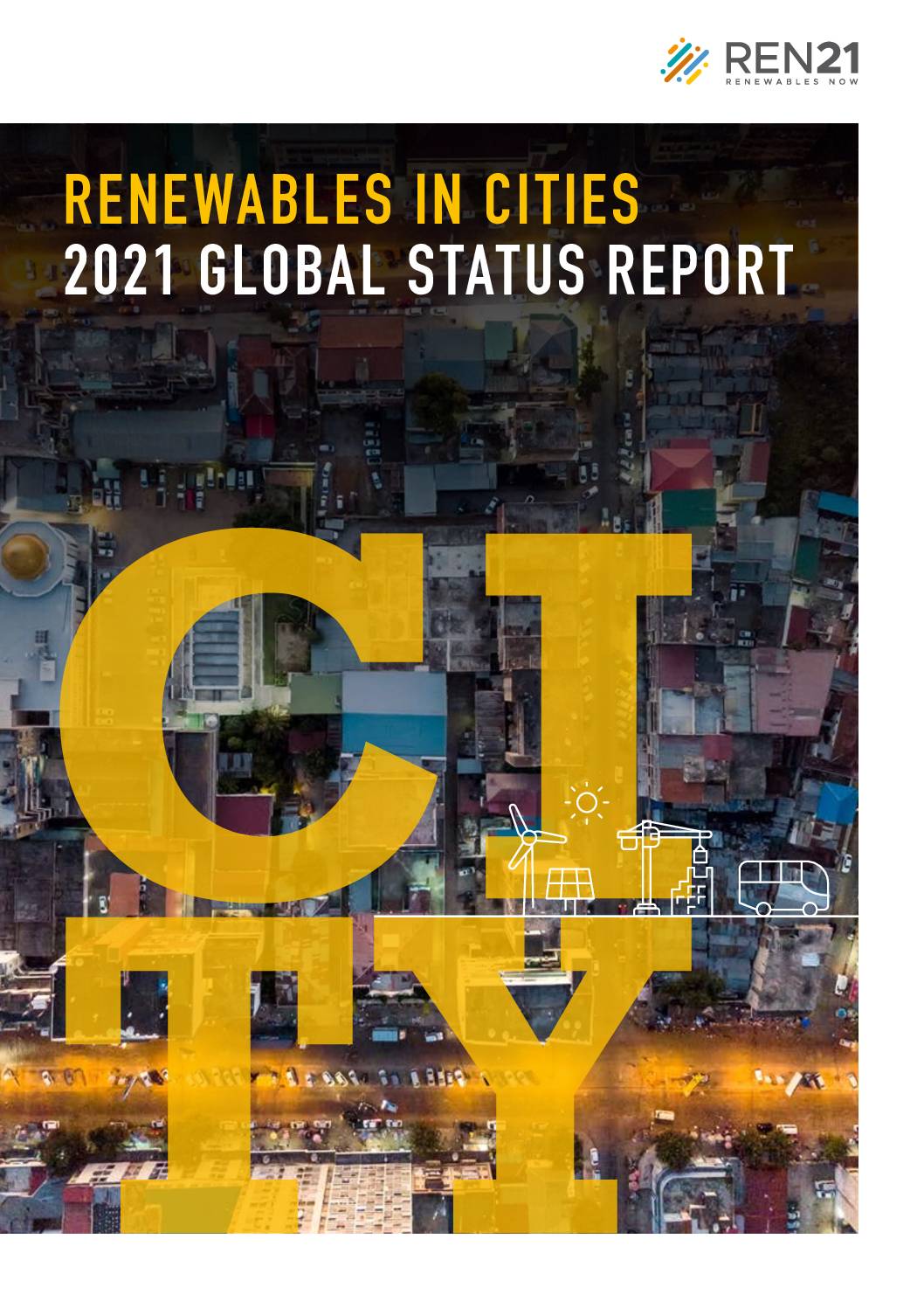City governments around the world are taking action to accelerate the global uptake of renewable energy, both in municipal operations as well as city-wide. Municipalities have installed, purchased and contracted for renewable energy to meet the demand of their own buildings and vehicle fleets; adopted renewable energy targets and policies to incentivise the local generation and use of renewables; and supported urban community energy projects.
Traditionally, national governments have been the main entities tasked with governing the energy supply and driving the transition to renewables. Still today, many city governments continue to perceive the national government as the primary entity responsible for defining and implementing the energy agenda. However, city governments are uniquely positioned to lead locally in the shift from fossil fuel-based systems towards renewables, while curbing energy use and related greenhouse gas emissions. Decarbonising heating, cooling and transport, which together represent more than 80% of final energy demand, requires local solutions. Thus, cities – including their governments, inhabitants, and commercial and industrial actors – are essential to building a renewables-based economy, and their active participation is critical in helping to define and implement the energy agenda at the local, national and global levels.
REN21’s Renewables in Cities Global Status Report (REC) series provides an overview of the status, trends and developments of renewable energy in cities, using the most up-to-date information and data available. The REC’s neutral, fact-based approach documents in detail the annual developments in policies, markets, investments and citizen action, with a particular focus on renewables in public, residential and commercial buildings as well as public and private urban transport. The REC complements REN21’s Renewables Global Status Report, which covers renewable energy market, industry and policy trends. Jointly, these reports contribute to making renewable energy visible in the global debate, drawing decision makers’ attention to renewables and continuously providing better data and tracking to inform energy decisions worldwide.
Link to resource Download sourceShare this

Sector: Cross cutting
Country / Region: Cameroon, Global, Senegal, South Africa, Togo, Uganda
Tags: citizens, climate governance, commercial buildings, corporate reporting, emissions, energy markets, energy supply, REN21, stakeholders, targetsIn 1 user collection: C2E2 Contributions
Knowledge Object: Publication / Report
Published by: REN21 Secretariat
Publishing year: 2021
